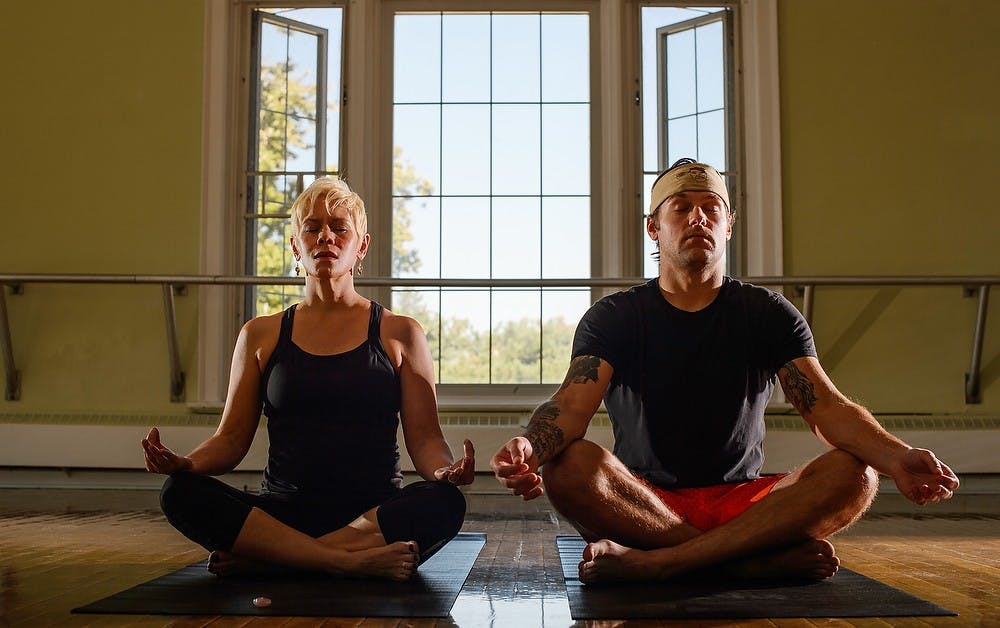Post-traumatic stress disorder isn’t a problem too many students here at MSU face. But for professional writing senior Logan Stark, he knows it all too well.
Stark, who is graduating in December, served a tour in Afghanistan and was in the Marine Corps from 2007 to 2011.
Stark created a documentary to honor the 25 fallen comrades in his battalion titled “For the 25,” in his advanced multimedia writing class, where he said he “was starting to explore what exactly PTSD was.” He also wrote an article for The New York Times on his experience in Afghanistan and the making of his film.
After all of this, however, Stark said he wasn’t aware of how PTSD was affecting his brain. It was this summer when he found an unlikely solution — yoga.
Through MSU’s Department of Psychology, Stark took part in a nine-week experiment to figure out whether yoga can help war veterans going through PTSD.
Stark heard about the experiment through East Lansing yoga instructor Kintla Ernst, who was a part of the study. Stark said Ernst underwent trauma as a child herself, and knew how beneficial yoga could be for someone going through it. The study was an opportunity to find concrete evidence of that.
“She had read an article that I had written and she tracked me down, sent me a message and we got coffee. She asked me if I would be interested in participating in the study with the Michigan State psychology department,” Stark said. “It was a no-brainer, anything that I could do to help people who had gone through trauma.”
The study had Stark do yoga once a week and perform a series of computer tests that measured focus and distractibility. During the study, they would measure his brain waves with an electroencephalogram, which recorded his brain activity throughout the nine weeks.
Before the experiment, Stark said his working memory, or short-term memory, was low and increased throughout the experiment. Stark also said the experiment is what helped him to realize that his “focus was horrible.”
“I was becoming aware of what my mental state was. I felt like (by) becoming aware I was able to use the yoga to improve that,” Stark said. “I can focus so much better now and most of the things I didn’t realize were wrong are just gone, totally improved.”
Stark said that one result that happens when people go through a traumatic experience is that people become disconnected from themselves.
“That can cause all sorts of problems for a person. Yoga is a way to establish that connection with the body. It’s sort of a really good way to connect the mind and body,” Stark said.







